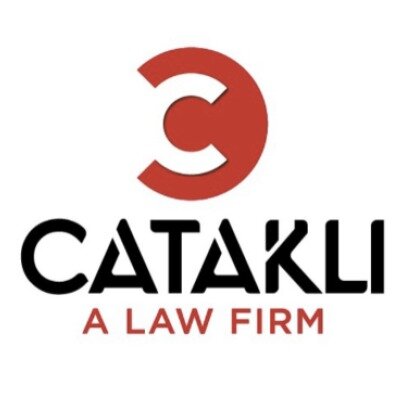Best Agriculture Lawyers in Luxembourg
Share your needs with us, get contacted by law firms.
Free. Takes 2 min.
List of the best lawyers in Luxembourg, Luxembourg
About Agriculture Law in Luxembourg, Luxembourg:
Agriculture in Luxembourg plays a significant role in the country's economy, with a focus on dairy, wine production, and grains. The agricultural sector is regulated by various laws and regulations to ensure sustainable practices and the protection of natural resources.
Why You May Need a Lawyer:
You may require legal assistance in Agriculture in Luxembourg for various reasons, including disputes over land ownership, environmental regulations, contracts with suppliers or buyers, zoning issues, and compliance with EU agricultural policies.
Local Laws Overview:
In Luxembourg, agriculture law is governed by the Ministry of Agriculture, Viticulture, and Rural Development. Key aspects of local laws include regulations on land use, animal welfare, food safety standards, subsidies for farmers, and environmental protection measures.
Frequently Asked Questions:
Q: Can I change the land use of my agricultural property?
A: Changing the land use of agricultural property in Luxembourg may require approval from the relevant authorities and compliance with zoning regulations.
Q: What are the environmental regulations for farming in Luxembourg?
A: Farmers in Luxembourg must comply with environmental regulations related to water and air quality, waste management, and biodiversity conservation.
Q: How can I apply for agricultural subsidies in Luxembourg?
A: Farmers can apply for agricultural subsidies through the government's agricultural support programs, which aim to promote sustainable farming practices and rural development.
Q: What are the requirements for organic farming certification in Luxembourg?
A: Organic farmers in Luxembourg must adhere to the European Union's standards for organic farming and obtain certification from approved certification bodies.
Q: Are there specific regulations for livestock farming in Luxembourg?
A: Livestock farmers in Luxembourg must comply with regulations on animal welfare, hygiene standards, and the use of antibiotics in farm animals.
Q: How can I resolve a dispute with a supplier or buyer in the agricultural sector?
A: In case of disputes with suppliers or buyers, it is advisable to seek legal advice to negotiate a settlement or pursue legal action through arbitration or litigation.
Q: What are the regulations for importing agricultural products into Luxembourg?
A: Imported agricultural products must meet EU standards for food safety, labeling, and quality control to ensure consumer protection and fair competition for local producers.
Q: What are the tax implications for farmers in Luxembourg?
A: Farmers in Luxembourg are subject to income tax and social security contributions based on their agricultural income and business structure.
Q: Can I lease agricultural land in Luxembourg?
A: Leasing agricultural land in Luxembourg is subject to specific regulations and may require approval from the landowner and compliance with lease terms and conditions.
Q: How can I stay informed about changes in agriculture laws in Luxembourg?
A: To stay informed about updates in agriculture laws and regulations in Luxembourg, you can follow announcements from the Ministry of Agriculture, Viticulture, and Rural Development or consult with legal experts in the field.
Additional Resources:
For more information on agriculture laws and regulations in Luxembourg, you can visit the official website of the Ministry of Agriculture, Viticulture, and Rural Development or seek guidance from legal professionals specializing in agriculture law.
Next Steps:
If you require legal assistance in Agriculture in Luxembourg, contact a qualified lawyer with experience in agricultural law to discuss your specific situation and explore your options for legal resolution.
Lawzana helps you find the best lawyers and law firms in Luxembourg through a curated and pre-screened list of qualified legal professionals. Our platform offers rankings and detailed profiles of attorneys and law firms, allowing you to compare based on practice areas, including Agriculture, experience, and client feedback.
Each profile includes a description of the firm's areas of practice, client reviews, team members and partners, year of establishment, spoken languages, office locations, contact information, social media presence, and any published articles or resources. Most firms on our platform speak English and are experienced in both local and international legal matters.
Get a quote from top-rated law firms in Luxembourg, Luxembourg — quickly, securely, and without unnecessary hassle.
Disclaimer:
The information provided on this page is for general informational purposes only and does not constitute legal advice. While we strive to ensure the accuracy and relevance of the content, legal information may change over time, and interpretations of the law can vary. You should always consult with a qualified legal professional for advice specific to your situation.
We disclaim all liability for actions taken or not taken based on the content of this page. If you believe any information is incorrect or outdated, please contact us, and we will review and update it where appropriate.
















